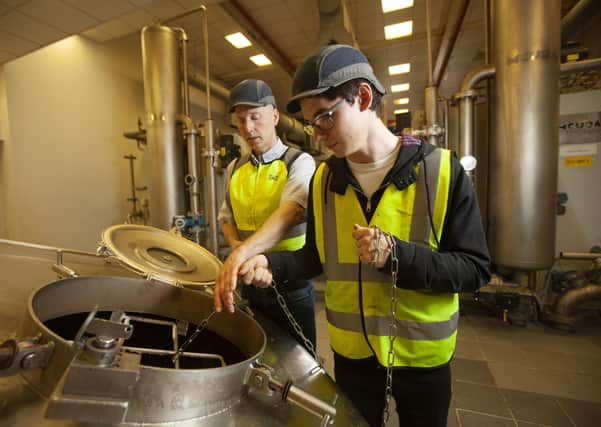The food industry is investing in future – Moira Stalker


The Scottish food and drink industry has shown great resilience throughout the Covid-19 crisis due to the talented people working in the sector. Our food and drink businesses have seen their employees step up to the challenge by taking on different roles and working in different ways to keep the nation fed.
It has never been more important for the industry to invest in developing their workforce. Food and drink businesses acknowledge the hard work and loyalty that their staff have demonstrated and their key priority is to reward and retain their employees. Talented staff will ensure that the industry is robust enough to face future disruptions, and explore new and innovative ways of working to thrive into the future.
Advertisement
Hide AdAdvertisement
Hide AdApprenticeships are a great way for companies to develop their existing workforce and to bring in new talent. I had a chat with Gerry McBride, Skills Development Scotland’s (SDS) Strategic Relations Manager for Food & Drink, to find out more about the benefits of apprenticeships.
Gerry’s role with SDS, Scotland’s national skills agency, is to work with the food and drink industry leadership group Scotland Food & Drink and other stakeholders to ensure the skills system is supporting the needs of businesses across the food chain.
Gerry explained that this support has become even more critical as we emerge from Covid-19. He said: “Throughout lockdown the sector’s workforce maintained our food and drink supply and were amongst the country’s ‘key workers’, which is a testament to their adaptability, flexibility and skill levels.”
In the beginning of the crisis SDS worked with the industry to address any short-term skills gaps with the development of the Job Hub – a free online resource for firms to post immediate vacancies. Unfortunately, there will be businesses needing to make changes which may include redundancies. SDS can work with these businesses to offer support to their workforce through the Partnership Action for Continuing Employment (PACE) initiative.
Moving forward SDS wants to work with businesses to ensure the correct skills provision is in place to support their future needs. Gerry said: “Apprenticeships and other forms of in-work training will play a key role in helping workers upskill and increase productivity”.
I asked Gerry what types of apprenticeships exist and which are relevant to the food and drink industry.
He explained that there are three types of apprenticeships – Foundation Apprenticeships for pupils in S5 and S6; and Modern and Graduate Apprenticeships for people 16 or over, employed by the company.
Gerry highlighted the diverse range of apprenticeships on offer to support the food and drink sector – from agriculture and aquaculture, through to food and drink technologies and engineering. These have been developed with employers to support workforce development and to create opportunities for those new to the industry. Gerry noted how vital it is for our skills system to be agile and adapt to the changing demands of the sector. SDS recently created a new brewing modern apprenticeship and will soon launch a new spirits operation one for the distilling sector.
Advertisement
Hide AdAdvertisement
Hide AdWhat are for the benefits of apprenticeships for food and drink businesses?
Gerry explained that many employers already offering Foundation, Modern and Graduate Apprenticeships recognise the benefits they can bring – including increased productivity, diversifying the business and addressing skills gaps. In SDS’ recent survey 79 per cent businesses said Modern Apprenticeships improved staff morale and over 90 per cent said they would recommend these to other employers in their sector.
Gerry emphasised how food and drink employers have been finding innovative ways to support their current apprentices during the pandemic – including the increased use of technology to help employees continue their learning in a safe environment.
As we move into the “new normal” of Covid-19 and beyond this is an ideal time for food and drink businesses to invest in their employees. The benefits of this investment far outweigh the initial investment. Results include; greater staff retention and loyalty, improved productivity and overall business improvement.
If you would like to find out more about apprenticeships and the support available to deliver these please get in touch with FDF Scotland or SDS.
Moira Stalker, Skills Manager, Food and Drink Federation (FDF) Scotland
Comments
Want to join the conversation? Please or to comment on this article.